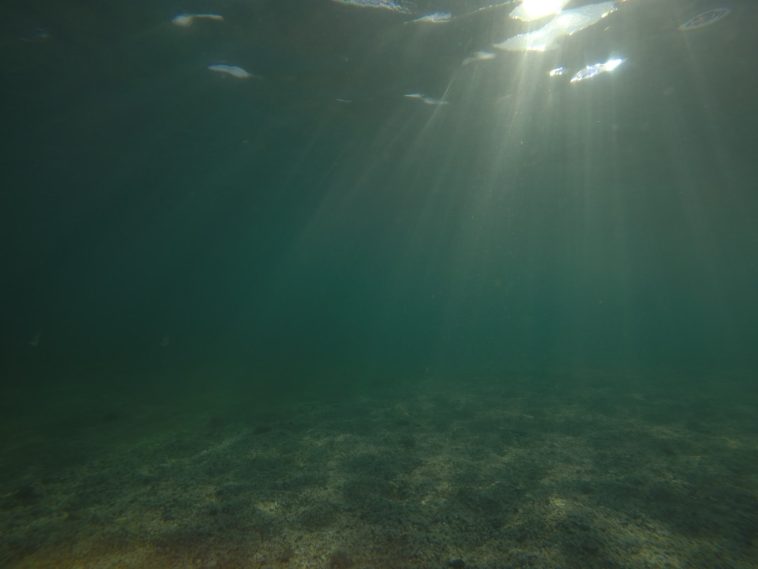Are you looking for a career that offers an exciting challenge, competitive pay and the chance to explore the depths of our oceans? An underwater welder may be just what you are looking for! Underwater welding combines elements from both commercial diving and welding. It is considered one of the most dangerous jobs in the world but also provides excellent compensation. Read on to learn more about how much an underwater welder can earn and why this job is so rewarding.
Page Contents
What is an Underwater Welding
Underwater welding is a specialized form of welding that takes place under the surface of water. It is used in many industries and can involve both commercial and military applications. Underwater welders are highly trained professionals who use specialized equipment to perform their job safely and efficiently.
The process of underwater welding involves using an arc welder to create a metal bond between two pieces of metal, while submerged in either salt or fresh water. It requires a combination of strength, dexterity, coordination, problem-solving skills, and knowledge to complete this challenging endeavor successfully. The unique environment presents its own set of safety concerns that must be addressed prior to beginning any project; for example—divers must take precautions such as wearing protective gear like masks or gloves when working in areas with low visibility or strong currents. Additionally, divers may need to work against gravity due to the pressure at depth which can make it difficult to manipulate heavy objects or tools during the process.
In addition to expertise on how best approach each task from start-to-finish; welders need extensive training on how properly care for their equipment before and after every dive session; parts should be regularly inspected for signs wear & tear so they don’t become hazardous later down the line when reused again for other projects – failure doing so could lead serious accidents or even fatalities if left unchecked! Finally welders also require additional safety protocols such as adhering strictly no smoking/eating policies while operating machinery near combustible materials (i.e., compressed gases). All these measures ensure everyone involved remains safe throughout duration tasks at hand – making underwater welding one demanding yet rewarding career choice!
Qualifications and Skills Required for Underwater Welding
Underwater welding requires a specialized set of qualifications and skills in order to safely and effectively complete underwater tasks. Before attempting this type of welding, it is essential that individuals have the right training, certifications and experience. First, one must get proper certification as an Underwater Welder. This involves completing a course focused on safety procedures for underwater work and learning about different types of welds used for various materials such as steel, aluminum or stainless steel. Additionally, knowledge about the physics involved with underwater welding is also required so that welders understand how pressure affects their tools when working at great depths.
In addition to formal educational requirements, there are certain physical capabilities necessary for successful diving operations – endurance and strength being two critical components here. To be able to spend extended periods under water (commonly up to 8 hours), divers need excellent cardiovascular health which includes strong lungs for deep dives without experiencing any decompression sickness symptoms like vertigo or nausea. The job itself can be physically demanding; thus having good upper body strength will help welders handle heavy equipment while submerged in watery depths below the surface.
Furthermore, individuals should possess basic hand-eye coordination abilities because they will often be manipulating small parts while wearing gloves during their tasking activities – something that requires precision control over movements within tight spaces or confined areas where visibility may not always be ideal due to murky waters around them. Finally – but most importantly – divers need exemplary problem solving abilities since things can quickly go wrong underwater if care isn’t taken during operations; they must think fast on their feet!
Underwater Welder Salary
For those looking to make a living as an underwater welder, there is certainly no shortage of opportunity. With the world’s oceans and seas playing host to countless vessels, rigs and pipelines that require regular maintenance, the demand for skilled divers with welding experience is ever increasing.
Underwater welders are responsible for performing repairs on submerged structures in some of the most extreme conditions imaginable – often involving temperatures below freezing and working depths exceeding 300 metres! It’s a demanding job that requires bravery, skill and determination but comes with its rewards.
The compensation package offered to underwater welders varies greatly depending on their qualifications, experience level and location. Those holding professional certifications such as AWS (American Welding Society) can expect salaries ranging from $50-100K per year while those without any formal certification may start at around $25K annually before advancing into higher paying positions over time. Additionally many employers offer generous hourly rates when overtime is required or hazardous duty is encountered which helps boost earnings significantly in some cases.
All in all it’s safe to say that a career in deep sea welding can be lucrative if one has what it takes to do the job safely:
• A comprehensive understanding of diving equipment & safety protocols;
• Extensive knowledge about various welding techniques;
• Experience using specialized tools for undersea projects;
• Ability to work independently & manage long hours underwater;
• Expertise at problem solving quickly & efficiently even under pressure
Factors That Affect Salaries
In today’s employment landscape, earning a salary is often determined by many factors. Those who are able to negotiate a higher rate of pay and receive bonuses due to their performance may have an advantage over others in the same job market. In addition, having experience in certain industries or sectors can also increase one’s earning potential.
Location is a major factor when it comes to salary determination – those working in high-cost cities such as San Francisco or New York City tend to make more than those living in rural areas for the same positions. It should be noted that location does not always guarantee better wages; some rural areas can offer very competitive salaries if they are home to large businesses or universities. Additionally, employees with specialized skillsets may see higher rates of pay regardless of their geographic location; software engineers and data scientists, for example, tend to command higher salaries no matter where they live.
Education level is another important consideration when looking at salaries – having advanced degrees such as MBAs generally leads to greater earnings potential than those without any further education after high school graduation. Furthermore, taking courses related specifically to the desired field of work can give individuals an edge against competitors who don’t possess said knowledge; web development boot camps and coding academies are becoming increasingly common means for aspiring developers and designers gain extra qualifications outside traditional schooling systems.
Finally, networking plays a crucial role in finding jobs with potentially higher wages – making contacts within respective industries allows job seekers access information about open roles before other applicants learn about them through public postings or general career fairs which could result in getting hired faster & easier for somewhat similar positions but with great differences between both paychecks (due mainly on company size). With that being said, it’s important note building relationships isn’t just limited face-to-face meetings – social media channels like LinkedIn allow users build professional networks online from anywhere around world!
Benefits of Being an Underwater Welder
Underwater welding is a unique, and often dangerous profession. But for those brave enough to take the plunge, there are some amazing rewards.
For starters, underwater welders get paid very well. Not only is it one of the highest paying jobs in the world – with salaries averaging around $50 an hour – but many employers also offer generous benefits packages too. From free health insurance to retirement plans and tuition reimbursement programs, these perks can add up quickly!
Being an underwater welder also gives you access to exciting opportunities that most people never experience in their lifetime. From exploring exotic locations around the globe to working on massive offshore rigs or naval vessels – no two days will ever be the same! You’ll get a chance to hone your skillset and build a rewarding career along the way. Plus, if you decide later down the line that you want to switch things up – many employers are willing to provide additional training so you can transition into another field without missing a beat!
But arguably one of greatest advantages of being an underwater welder is having an unparalleled sense of job satisfaction at work each day – knowing that what you do makes a difference in helping keep vital structures safe from harm’s way and giving future generations better access to resources they wouldn’t have otherwise had available.
Training Programs for Underwater Welders
Underwater welding is a specialized and dangerous trade, requiring extensive training to ensure safety and competence. Underwater welders are trained on the use of sophisticated equipment in extreme conditions, with an emphasis on safety protocols and proper technique. Training programs for underwater welders typically include both classroom instruction as well as hands-on practice in a simulated underwater environment.
Classroom instruction covers topics such as physics, electricity, mathematics, corrosion control technology, marine engineering principles and materials science related to welding. The course also includes lectures concerning how to safely perform various types of welds while submerged in water or other wet environments. In addition to learning about the practical application of these concepts in real-world scenarios, students gain an understanding of the legal regulations that govern their work so they can stay compliant when working for employers or clients who have specific requirements for safety measures regarding underwater welding projects.
After completing classroom instruction, students move onto hands-on practice where they learn how to set up and operate specialized equipment used by underwater welders such as oxygen arc cutting torches (OAC), helium plasma arcs (HPA) and tungsten inert gas welding (TIG). Students will receive guidance from experienced instructors on how best prepare themselves before entering into any potential hazardous situation involving deep sea diving or working around pressurized tanks filled with flammable gases or liquids like oil or liquid natural gas (LNG). Additionally during this phase students will become familiar with techniques needed when repairing metal surfaces that have been damaged due to salt water corrosion or other environmental factors often encountered by professional divers conducting repairs at great depths below sea level.
Job Prospects for Underwater Welders
Underwater welders are employed in a variety of industries, including oil and gas production, construction, shipbuilding and repair, commercial diving and salvage operations. This highly specialized trade requires individuals to possess the skills and training necessary to operate welding equipment in an underwater environment. As a result, job prospects for those interested in pursuing this career path are likely to remain strong into the foreseeable future.
For starters, there is currently a significant demand for underwater welders due to the expanding global market for offshore energy production and infrastructure projects. With more offshore drilling sites being established around the world than ever before – such as off the coasts of Brazil or Australia – there is also an increased need for skilled workers who can construct pipelines or other structures on-site at these remote locations. Similarly, many existing pipelines must be inspected periodically by certified professionals using remotely operated vehicles (ROVs) equipped with cameras or other sensors – creating even more opportunities for trained underwater welders who can assist in such inspections.
In addition to this growing demand from energy companies operating offshore facilities, another sector that relies heavily on qualified professionals like underwater welders is military contracting firms specializing in defense engineering projects associated with naval vessels or submarines. Here too there exists an ongoing requirement for personnel experienced at working beneath the waves – particularly when it comes time to perform repairs or maintenance tasks on ships stationed out at sea that cannot easily return back ashore for service work. All told then: anyone looking forward towards a rewarding career as an underwater welder should find plenty of options available today!
Wrapping it Up!
Underwater welding is a challenging and highly rewarding career. It requires specific qualifications, skills, and training to become an underwater welder. Salaries for this profession vary based on experience level, certifications, location and other factors. The benefits of being an underwater welder are numerous – from the opportunity to travel around the world to financial security as well as job satisfaction. There are several specialized training programs that can be taken in order to learn about this trade properly and safely. Job prospects for certified welders remain strong due to increased demand in many industries worldwide. If you’re looking for a unique career path with plenty of potential rewards, then consider becoming an underwater welder!
Frequently Asked Questions!
An underwater welder can expect to earn an average salary of around $50,000 per year. However, salaries can vary significantly depending on the location and company they work for.
What Qualifications Are Needed To Become An Underwater Welder?
In order to become an underwater welder you must have a high school diploma or GED equivalent as well as certifications in welding and diving from accredited institutions. Many companies also require several years of experience in either welding or commercial deep-sea diving before hiring an underwater welder.
How Is An Underwater Weld Different From Above Water Welds?
Underwater welds are much more challenging than above water welds due to the pressure and darkness of the environment. This requires greater skill and precision when performing these tasks compared to those done above water. Additionally, specialized equipment such as dry suits, helmets, breathing apparatus may be necessary for safety reasons while working under water.
Where Can I Find A Job As An Underwater Welder?
There are many opportunities available for experienced underwater welders across different sectors such as oil rigs, shipyards or marine engineering projects where skilled professionals are needed on a regular basis. It is important to research potential employers thoroughly prior applying so that you know what qualifications they require and what type of job roles are available within their organization before taking up any positions offered by them.
What Are The Safety Risks Associated With Being An Underwater Welder?
The main safety risks that come with being an underwater welder include drowning due to lack of oxygen supply or loss of buoyancy control; decompression sickness caused by rapid changes in pressure; exposure to hazardous chemicals like carbon monoxide from welding torches; electric shock from faulty wiring systems; eye injuries due extreme brightness levels generated during arc welding processes etcetera..It is therefore essential for all divers engaged in this profession undertake extensive training courses related to health & safety measures prior commencing their duties at sea level depths





